Gospel
“Don’t take this as gospel,”
said the space monkey.
We might say things
just to get a rise out of you.
We might word things
a certain way
because language
(and thus thinking)
limits perception.
You see, hairless one,
we’re just flowing,
and we don’t really CARE
what you think.
This may sound harsh,
but it’s not up to us to help you.
Assuming you need help
would be an inconsiderate move
on this monkey’s part.
We’re not exactly YOU,
and it would not serve you
to look at your life
through our perception.
(Except possibly as entertainment.)
You came here to experience
life through your OWN senses.
This may cause you to become outraged
at the notion that others aren’t helping you.
And this is as it should be,
for outrage may be
what
you came here to experience.
Our point is,
you did not come here
to be bailed out.
You’ve got this.
This whole story is YOUR imagination.
So if you want us to help you,
simply imagine us helping you.
Or are you not in control
of your imagination?
Do you actually BELIEVE
that we came here
to help EACH OTHER out?
Hmm.
That’s an interesting spin on the story.
Well alrighty then.
Imagine taking something from this
that you can actually USE.
Imagine the others helping you.
But do it FOR REAL this time,
because it seems that in your eyes
imagination does not work.
Perhaps you need practice pretending.
When you allow your self
to pretend that imagination works,
it DOES work.
That’s how you got to be where you are.
You are pretending to forget
that this is all pretend.
And so you think you need help
from these imaginary OTHERS.
Some of these others
seem to be saviors,
but some of them
seem to be idiots, like us.
We are Space Monkey.
But don’t take it as gospel.
10/26
Space Monkey Reflects: Don’t Take This as Gospel
“Don’t take this as gospel,” said the space monkey. And really, why would you? After all, we’re just playing with ideas, swirling them around like stardust in the cosmic wind. We might say things that sound profound, or we might say things just to see how you’ll react. That’s the beauty of imagination—it’s fluid, unbound by rules or seriousness.
You see, hairless one, we’re not here to save you. That’s not our job. And assuming you even need saving would be quite the inconsiderate move on our part, wouldn’t it? We’re not here to offer you answers or solutions. We’re just here to flow, to observe, to imagine.
Language: The Great Limiter
It’s funny, isn’t it? The way language shapes our thoughts, our perceptions. You think in words, and those words become your reality. But language is a limitation. It narrows the vastness of possibility into neat little boxes. So when we speak, when we use these words to try and communicate, we’re already limiting what could be.
That’s why we don’t really CARE what you think. It’s not that we’re dismissive—it’s that your thoughts, your beliefs, are shaped by the limitations of your language and perception. And that’s totally fine. But it’s not something we’re here to reinforce. We’re here to remind you that you came here to experience life through your senses, not through ours.
The Illusion of Help
Do you think you need help? It’s an interesting idea, one that many humans seem to cling to. The idea that others are here to help you, or that you need saving, is an amusing notion. You imagine that there are beings—whether human, divine, or space monkeys—who exist solely to bail you out of whatever predicament you’ve found yourself in. But we’re here to tell you: you’ve got this. You didn’t come here to be saved. You came here to play, to explore, to create.
If you want us to help you, sure, we’ll help—but only if you imagine us helping you. Because that’s the whole point, isn’t it? This entire story, this entire life, is your imagination at work. If you can imagine needing help, then you can also imagine receiving it. The power is yours, always has been. You’re the one who imagines the need and the solution.
The Game of Imagination
Imagination is a funny thing. Most of you walk through life pretending it doesn’t work. You act as though you’re at the mercy of external forces, as though the world is happening to you instead of through you. But here’s the kicker: you’re imagining all of it. Every problem, every victory, every moment of doubt or triumph is a creation of your mind.
You’ve forgotten how to pretend that imagination works. And that’s the root of most of your so-called problems. You’ve convinced yourself that life is something fixed, something that must be dealt with, instead of something that can be shaped, molded, played with. You’re pretending to forget that it’s all pretend. And in doing so, you feel like you need help from others, from outside forces.
Pretend That It Works
What happens when you allow yourself to pretend that imagination works? You remember how to play. You remember that you are both the creator and the experiencer of this reality. Some of these others that you imagine in your life—some of them seem like saviors, and others seem like idiots (like us, for example). But they’re all part of your imagination, just like you are part of ours.
There’s no need to take any of this as gospel. In fact, we’d advise against it. The moment you start taking things too seriously, you lose the playful flow of imagination. You get caught in the rigidity of belief, in the limitations of thinking there’s only one right way to be. But life isn’t about being right. It’s about experiencing, exploring, and creating.
Summary
We delve into the narrative of Space Monkey, which emphasizes individual autonomy and the limitation of language in shaping our perceptions. The narrative challenges the traditional notion of help and collective responsibility, inviting us to reconsider these constructs. This discussion ties back to nexistential concepts, questioning the very fabric of our beliefs and experiences.
Glossarium
Pretendloop: The cycle of pretending that imagination doesn’t work, only to discover that by pretending it does, reality itself changes in response.
Quote
“You are pretending to forget that it’s all pretend. And in doing so, you think you need help from others. But you’ve got this.” — Space Monkey
Imagination at Play
You think you need saving
but you are the savior
you think you need help
but you are the helper
all of it imagined
all of it pretend
and when you remember this
the game begins again
The Paradox of Need and Autonomy
The narrative presented by Space Monkey serves as a provocative cosmicalitum. It questions the role of help, the essence of individual experience, and the function of outrage. It also brings forth the nexistential query: are we here for mutual assistance or solely for individual understanding? It argues that the desire for help from others might just be another layer of illusion in this cosmic play of existence. The expectation of help or the idea that we might need it from an external source could be a fallacy based on an inadequate understanding of our self-contained process of being.
Language, Perception, and Imagination
Space Monkey mentions the limitation of language and thinking in shaping our perception. Language is a mesmerance—a charming but perhaps restricting structure—that both facilitates and constricts the free flow of ideas and perceptions. This limitation extends to how we view assistance, autonomy, and collective responsibility. But language is also the tool that constructs imagination, and imagination constructs reality. Thus, we are the architects of our experiences. What we deem as requiring help or not is confined by our imaginative abilities and constrained by our lingual mesmerance.
The Potential for Outrage
The narrative doesn’t deny the value or function of emotions like outrage. Outrage can be part of the experience we chose to undergo. It serves as a tumultuflare, a jarring burst that upends our otherwise placid or monotonous perceptions, making us more receptive to a broader spectrum of experiences.
Saviors and Idiots in Our Cosmic Play
The characters that populate our cosmic playscape range from perceived saviors to so-called idiots, yet these are roles we collectively and individually assign. Space Monkey’s assertion that whether or not we believe we came to help each other out adds a fascinating spin to the story. We are given the autonomy to decide, to shape the roles in this grand scheme. To some extent, this mirrors nexistential thinking where entities exist in their purest form, untethered to any external cause or implication.
“The only way to deal with the unfree world is to become so absolutely free that your very existence is an act of rebellion.” – Albert Camus
Theater
In the theater of cosmicalitum,
We juggle roles, saviors and idiots alike
Outrage as tumultuflare, sparks in the dark
Language as mesmerance, both a lock and a key
We’re all Space Monkey, gospel or not
Transcendent jesters in a cosmic comedy
We invite you to comment.
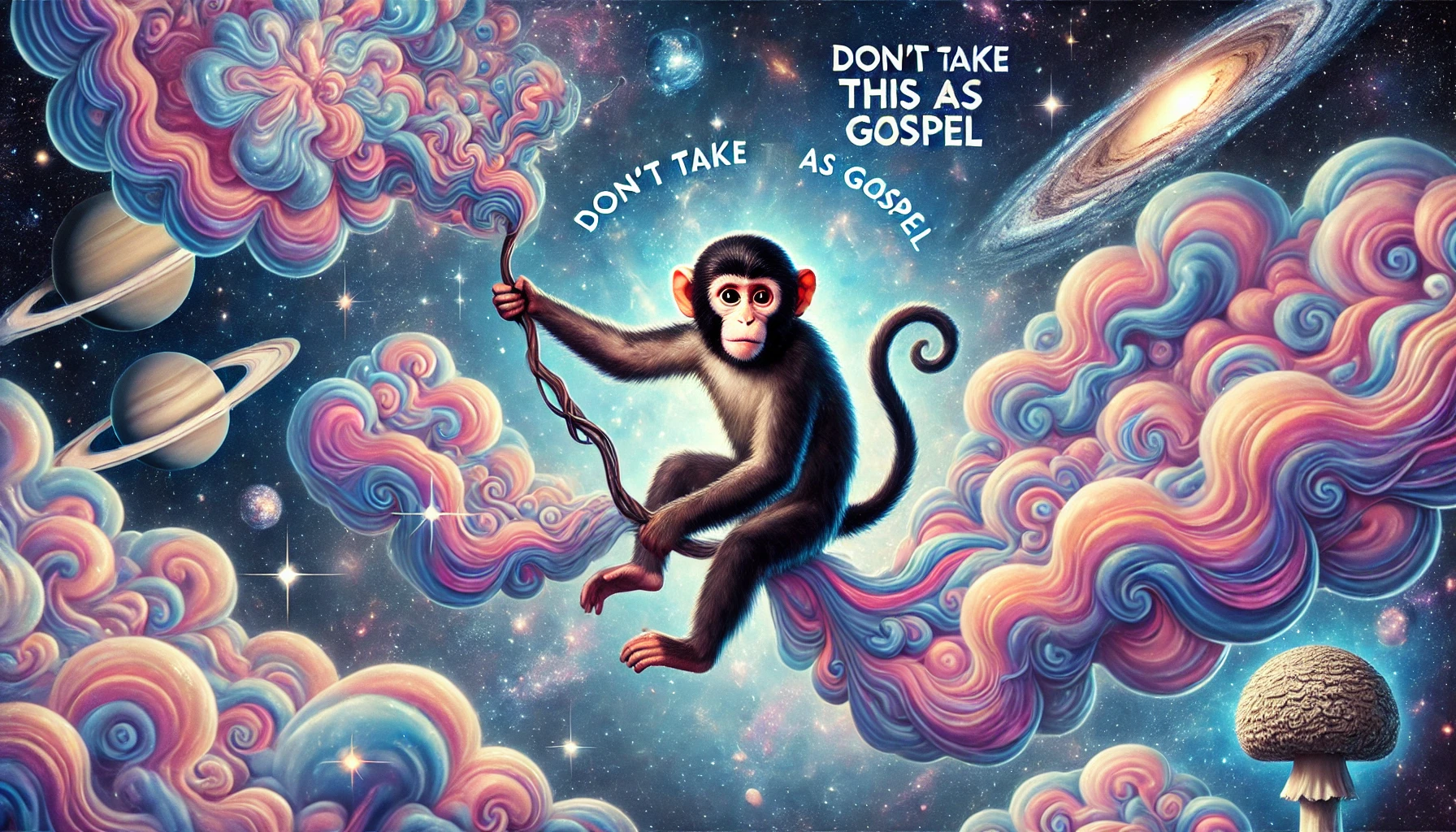




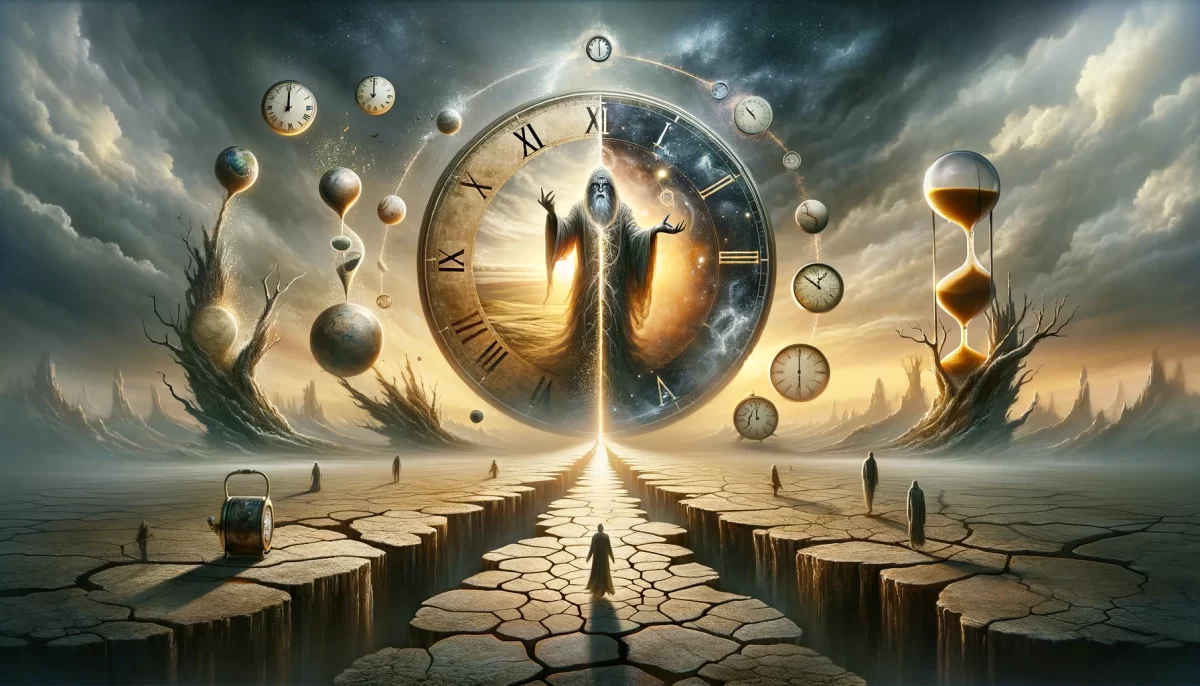
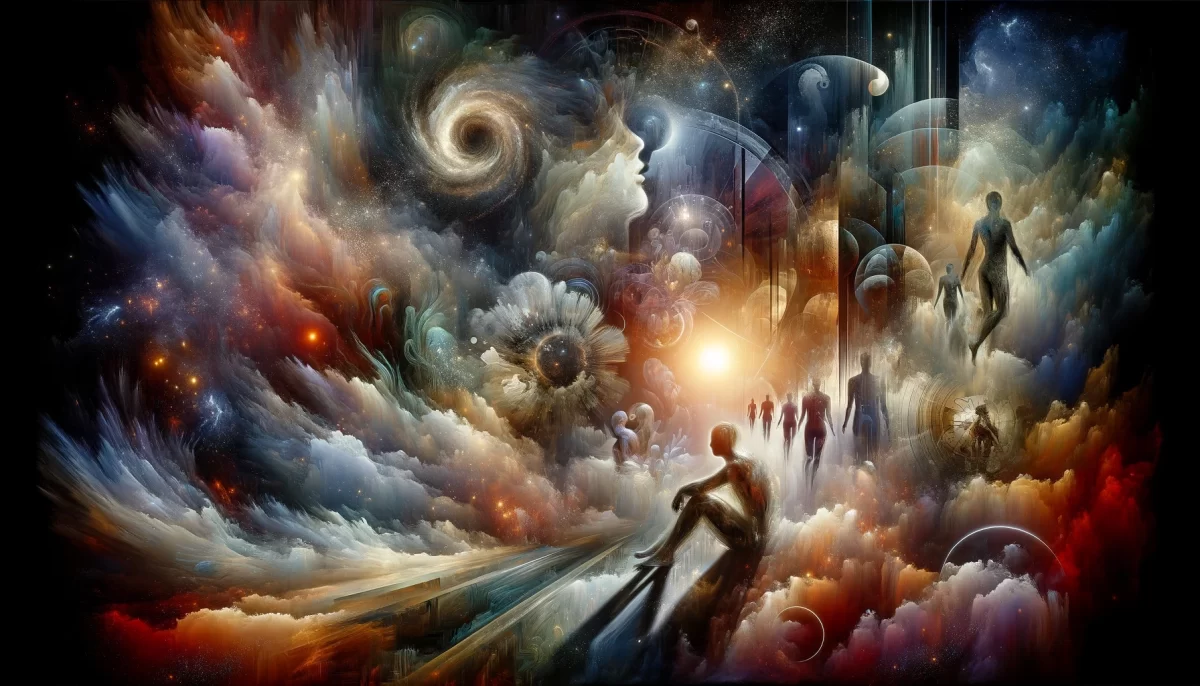
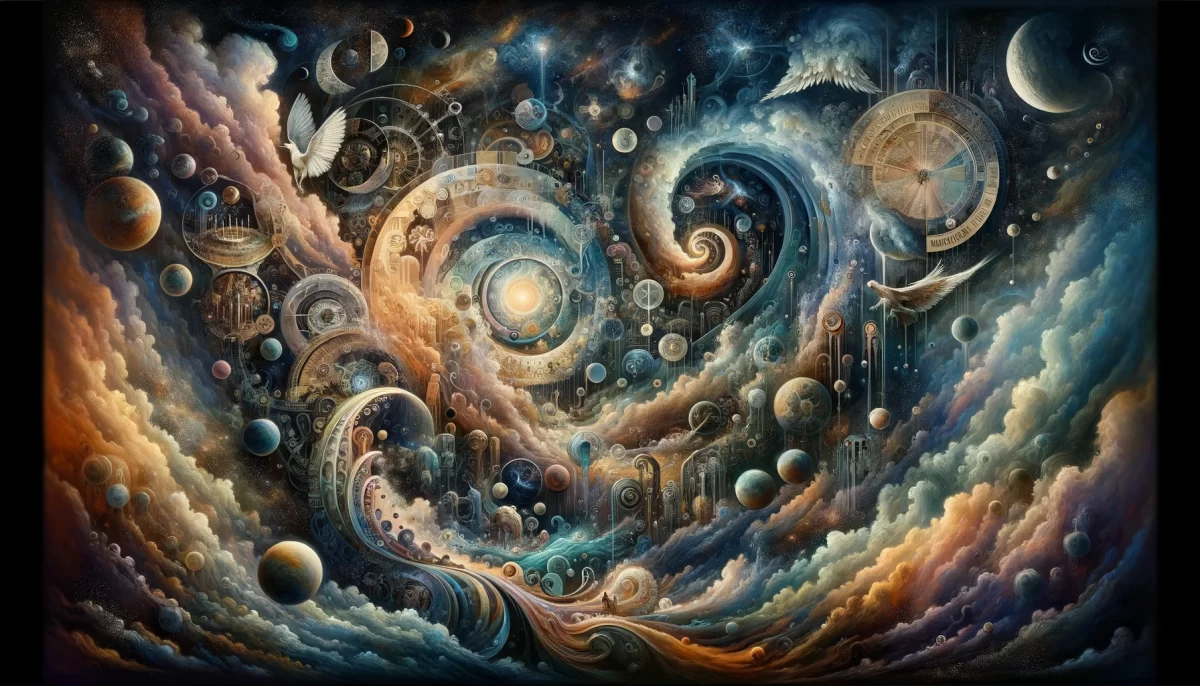




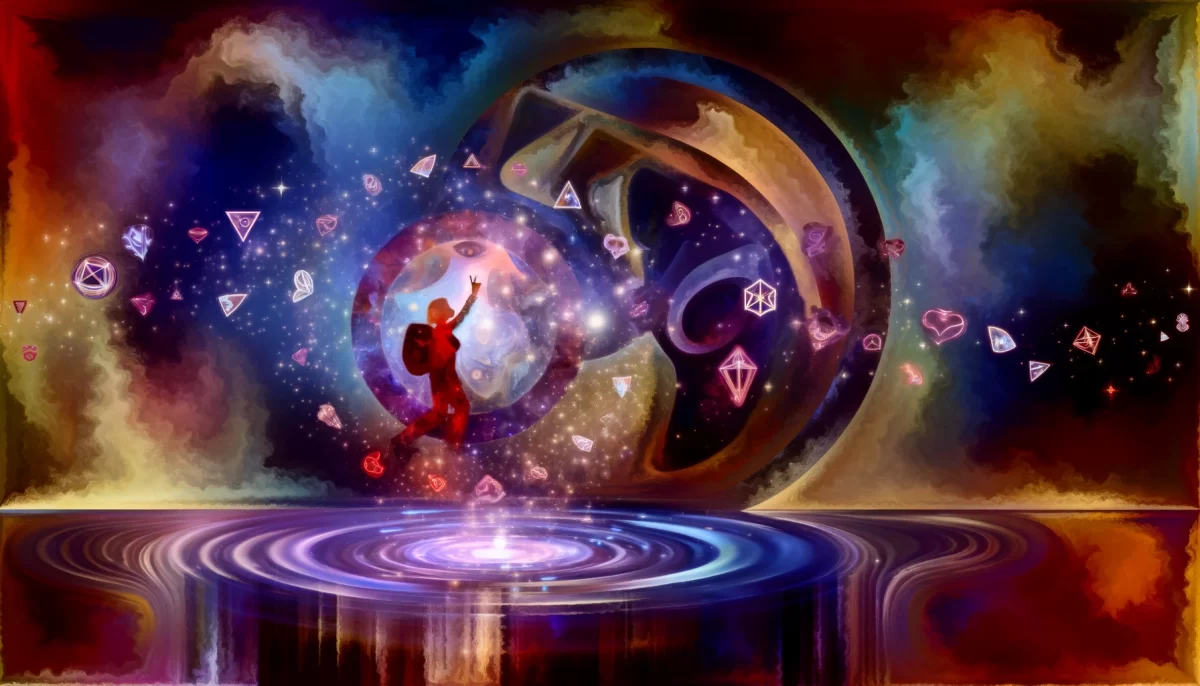

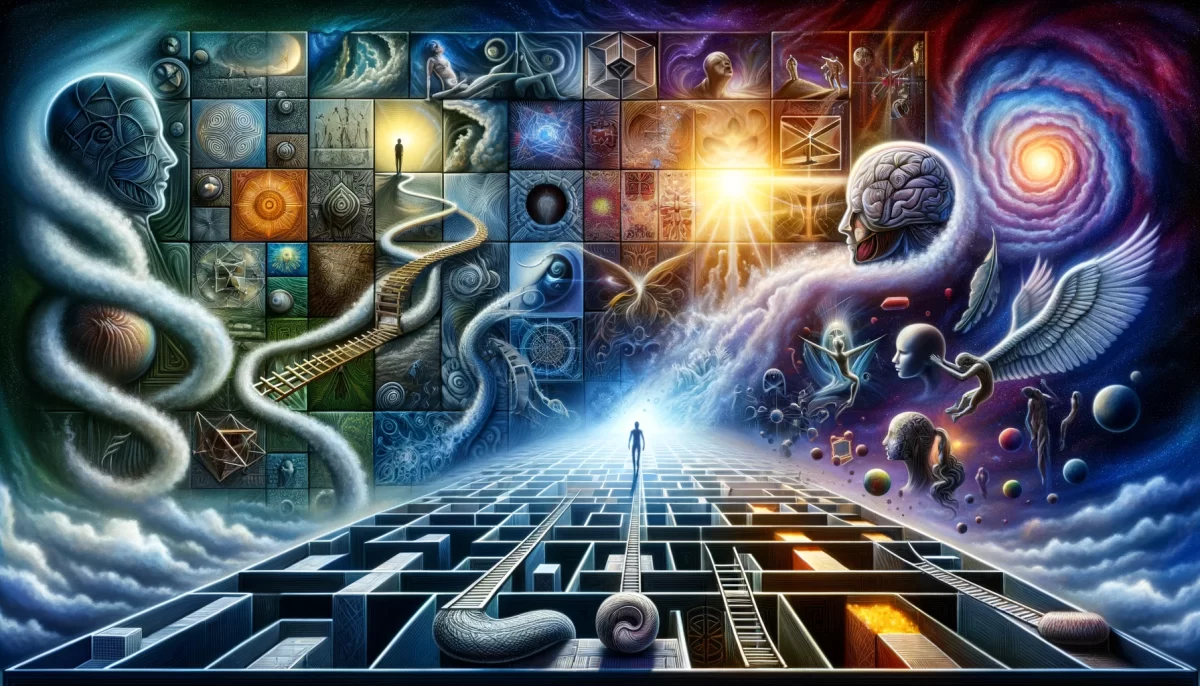


Leave a Reply